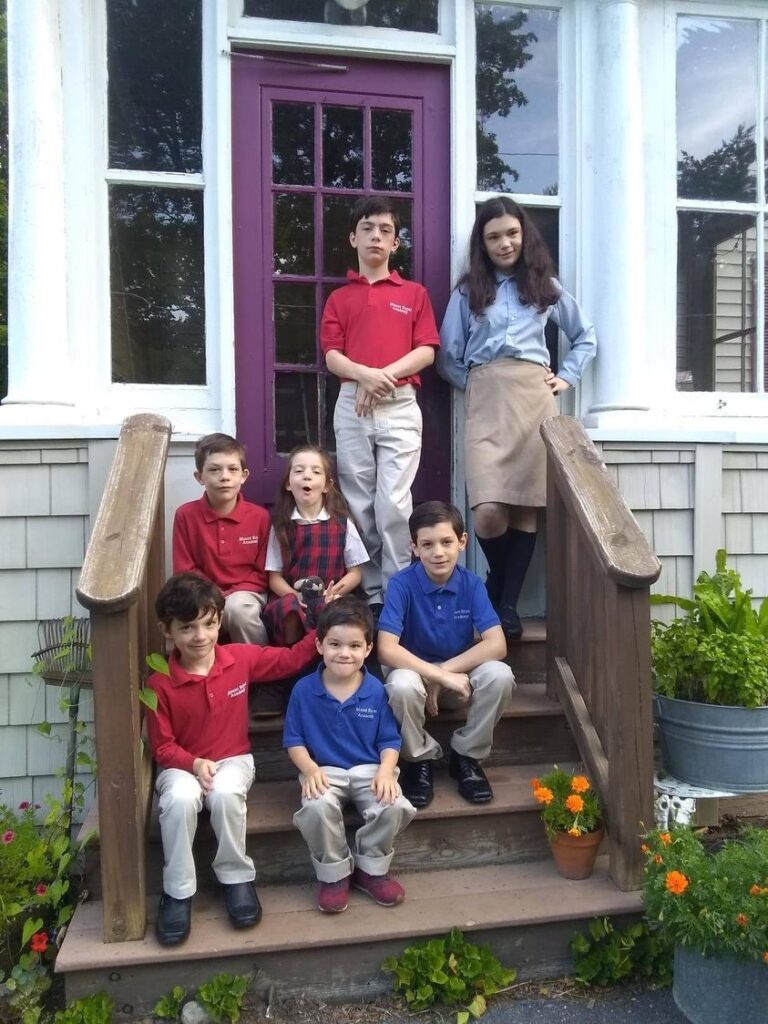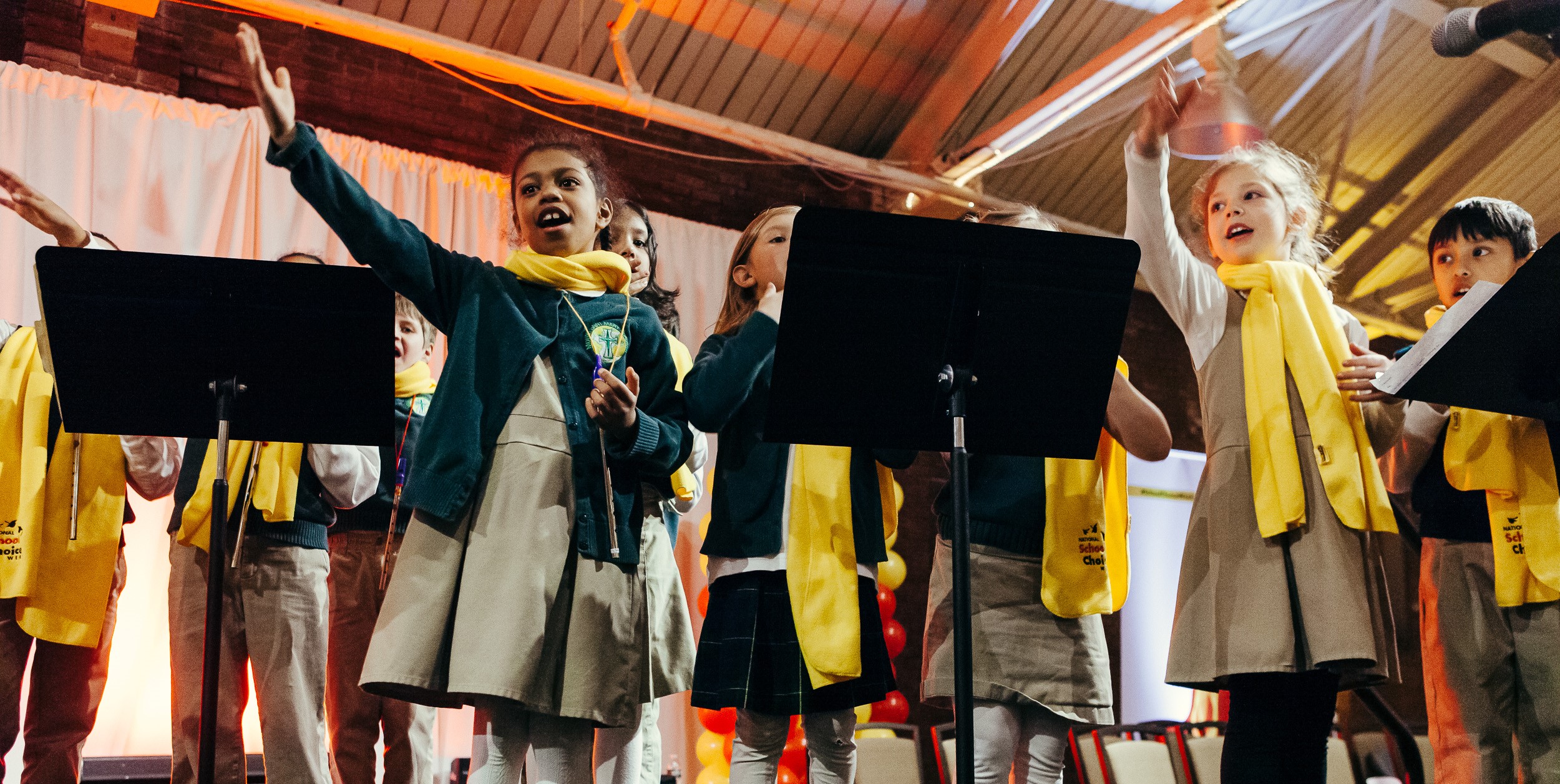Note: This article was originally published by The Josiah Bartlett Center for Public Policy.
By Mitchell Scacchi
Sarah Breisch knew she could do better for her six children than send them to their government-assigned district public schools.
The public schools in their city, Claremont, are low-performing. “I don’t have anything necessarily philosophically against public schools,” Breisch told us, “but just being very honest and frank, Claremont’s public schools rank very, very low in terms of performance.”
According to a U.S. News & World Report ranking, Stevens High School, Claremont’s public high school, ranks 60th among high schools in the state. Only 36% of students in the Claremont school district are proficient in English language arts, while another 23% each are proficient in math and science—all in the bottom 25% among New Hampshire public school districts.
The school district also faces many similar problems afflicting other public schools in cities across the country. “We just have a lot of troubled families in our town and the public schools reflect that, and there’s just no getting around it,” she said. “So we just were like, ‘Okay, the kids are not going to go to public school.’”
Instead, Breisch elected to enroll them in a Sunapee private school 30 minutes from home called Mount Royal Academy. She first received assistance from New Hampshire’s Education Tax Credit Scholarship—the state’s first school-choice program that awards scholarships funded entirely by donations from individuals and businesses—to pay part of the tuition and help make ends meet.
Since then, Breisch decided to homeschool two of her children because the traditional classroom setting was not meeting their unique needs. She said she was only able to do this thanks to the Education Freedom Account (EFA) program, in which Breisch’s family was one of the first to enroll when the program went online in 2021.
“For my two kids that are being homeschooled, essentially the classic schoolroom is just not for them,” she said. “Your typical schoolroom setting just wasn’t working for them, and we were struggling with school refusal, lots of anxiety, it just wasn’t a good fit for them. So we’ve seen marked, marked improvement not just in their academics but just in their overall well-being being able to be homeschooled. And if not for the EFA, I still might have brought them home for their overall well-being, but I can’t say with certainty that it would have been too great for them because I don’t have the casual income to just kind of buy curriculum and things for them to use.”
At one time, Breisch had four of her kids enrolled at Mount Royal Academy and two homeschooled. Her oldest child just graduated from Mount Royal last year and is currently attending Keene State College.
Breisch said all six of her children received an EFA worth roughly $4,700 each (compared to Clarmeont’s cost per pupil of $21,590 as of 2023). A similar amount was awarded to her four children at Mount Royal from the Education Tax Credit Scholarship as well. With Mount Royal’s maximum tuition being $10,700 per year, she said, these school choice programs allowed her to send her kids to an environment that suits them for little additional cost.
“Basically those two awards that my kids in private school got essentially covers almost the entire cost of tuition. There’s still a little bit of family fundraising that we do, and I still have to get their uniforms and things like that, but it makes it possible for them to attend the school, and it’s serving them very well.”
The EFA program gave Breisch the freedom to explore what form of education works best for each of her kids. While she found that some of her children thrived in a more traditional school setting like Mount Royal, the EFAs gave her the resources to provide a more unconventional environment to suit her two homeschooled kids.
“Just as an example: My son, who’s currently in eighth grade, we brought him home in the middle of seventh grade, and he was not in a place mentally where he was going to do anything academic, he just wasn’t able to do that,” she recalled. “But what he was able to do was a lot of art projects—it was almost therapeutic for him. And I’m an artist as well, so that was something that we kind of bonded over. And because of the EFA, I was able to purchase for him materials such as clay and clay tools and things like that that I would not have been able to buy with my own income…. It was definitely life-changing for him, it was absolutely life-changing.”
Securing access to an EFA for her eighth grader represented a complete transformation in his educational journey that was extremely healing for him, Breisch said.
“Before it was just a daily struggle of, get out of bed, go to school, ‘Well, why?’ ‘Well, because you have to,’ ‘Why do I have to?’ So it’s like now in a place where he’s comfortable enough to start being curious about his own destiny, whereas before I feel like perhaps he felt like he was being pushed into a destiny someone else had in mind for him that didn’t feel like his.”
She found similar results with her two oldest kids at Mount Royal, she said.
“My oldest, like I said, she graduated from [Mount Royal], she was inducted into the National Honor Society when she was in tenth grade, so she did really excellently there. She got great support from the teachers, she found the curriculum engaging, interesting, and just felt like it was a really great fit for her, and she was able to achieve really great things academically.”
And with her now-eleventh grader, Breisch recalled his previous struggles with math. “He’s very much internally motivated to do well, but he wasn’t able to connect with his teacher, he wasn’t able to connect with this material, not for lack of trying, it just wasn’t clicking with him. And the teacher acknowledged that. The best teacher in the world can’t necessarily connect with every student because people are just different.”
Thanks to Mount Royal’s flexibility and Breisch’s EFA funds, she was able to supplement her son’s classwork with an online algebra course from the Virtual Learning Academy Charter School (VLACS) that has led to remarkable improvement, she said.
“I think he’s got like a B average now in that algebra class that he’s doing online. It’s just been great for him because now he can focus his energy on the classes he is taking at Mount Royal, and his grades are better than they’ve ever been, and he’s working a part-time job. And that’s what an eleventh-grade boy needs is to feel good about himself, and I just feel so great that we were able to have those options for him.”
Paying for a VLACS course, private school tuition, and/or art supplies with EFA funds isn’t as simple as the state sending cash straight to families for them to use however they please, Breisch explained. Rather, there’s more oversight than one might think.
“Certainly nothing like cash is just handed to parents,” she said. “That never happens. You apply to the program, you’re awarded an amount, and that amount goes directly to ClassWallet where it is managed by human beings. So you can go in there and shop on our approved vendor list and make a shopping list and send it off for approval, and then human beings have to look at that and approve it or not approve it.”
ClassWallet is an approval-based system and restricted-use account through which EFA families can make purchase requests, one of the many ways in which the EFA program is held accountable to both parents and taxpayers.
“I’ve had orders be not approved and I’ve had orders be approved, it just depends on what you’re looking for…. Anything that is used to enrich a child’s educational experience will be approved, but they’re not going to approve things that are not obviously for that child’s educational use, and I think that’s really important for people to know.”
With six kids, Breisch had to navigate meeting six unique sets of learning needs, and it was the EFA program that gave her the ability to explore all the options out there for them. It’s no wonder, then, that she’s one of the program’s staunchest defenders.
“I like to try to be an apologist for the EFAs when people say to me, ‘Well, it’s taking funding away from students,’” she said. “I’m like, ‘Well, that’s just not logical because if the child isn’t enrolled in the public school, there would never be funding for them at all,’ so that’s a spurious argument to begin with.”
The educational success had by Breisch’s four children is not available to all New Hampshire students. The EFA program is capped by income. Families earning more than 350% of the federal poverty level ($109,200 for a family of four) cannot participate. This excludes many middle-class families from having an actual choice in their children’s education.
The House has passed a bill, House Bill 1665, to raise the cap to 500% of the federal poverty level ($156,000 for a family of four). The Senate trimmed it down to 400% ($124,800 for a family of four). Negotiations between the chambers are ongoing.
The reality of not having a real choice in education is something Breisch understands well.
“I always tell people you want to feel like you have a choice when you’re making a choice,” she explained. “But if you’re strapped and really can’t afford to do things that would be your preference, saying I have a choice doesn’t seem genuine. So I want as many people to know about the EFA program as possible because maybe you’re fine with using your local public school and that’s fine, but if you’d rather have a choice but don’t know that a choice exists, sending your kids there doesn’t really feel like you’re making a choice. It feels like it’s your only option and that doesn’t always feel good.”
One family shopping among a wide variety of educational alternatives and learning models to meet each of their individual kids’ unique learning needs—why shouldn’t that apply to every Granite State student, or at least as many as possible? Expanding the EFA program to reach more families like Breisch’s would put more Granite State students in the driver’s seat of their own education, so that the Breisch family becomes more of the norm, not the exception.
If we truly care about doing what’s best for students’ overall education and well-being, then empowering them and their families to pursue the best educational environments for themselves is the easiest way to accomplish that. As the Breisch family’s journey with EFAs (and reams of research) makes abundantly clear, more school choice leads to more successful students.
“It’s all about choices. That’s really what this whole conversation is about,” Breisch said. “That I’m able to do different things for different kids, I think that’s the beauty of school choice in a nutshell.”

